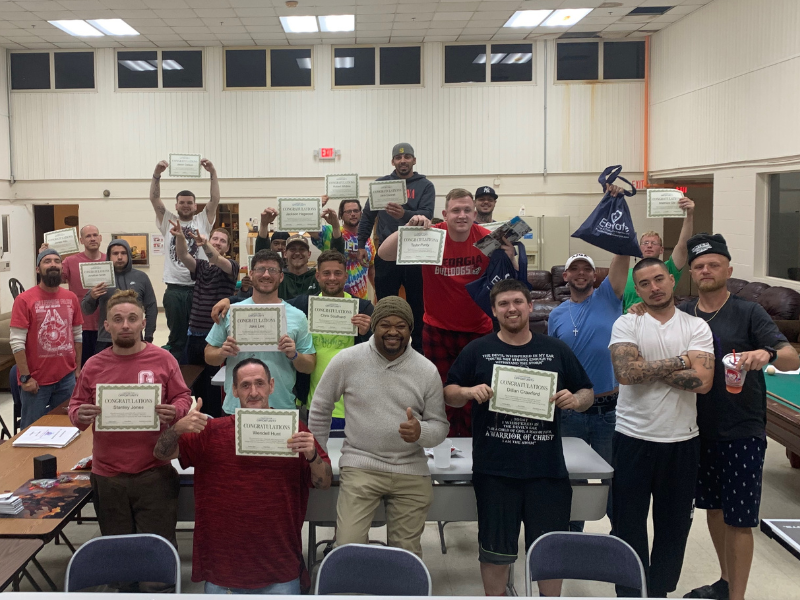Q: What does your partnership with GCO look like?
Anybody who’s in a situation that will require a program like ours has enormous barriers. One of the biggest barriers they have is they have burned all bridges with their family. Most of the time, they have kids that they can’t see or they have spouses who have divorced them or parents who have finally given up on them.
Earlier this year, we noticed that a lot of our graduates were still having problems. It was all based on the fact that we had not taught them how to handle relationships and how to handle family, how to build those relationships, how to identify good people to have relationships with. It seems like a complete backdoor problem that our program wasn’t answering that was causing it to undermine everything that we did.
We decided we had to focus heavily on relationships. We started doing that. But that really wasn’t our expertise. Our expertise is jobs, vocational training, and addiction and recovery. We needed help.
When I met Joyce Mayberry, vice president of family at GCO, she told me about everything your organization does. I immediately knew there was a great opportunity to have your team come in and teach these elements on relationships. Your programming, your curriculum, your expertise has all been amazing.
Q: What was the first class like?
It was a resounding success. We’ve had multiple guys in our program that have re-evaluated current relationships they’re in based on that class. That’s one side of it. The other is that we want to restore their family relationships, relationships with kids, relationships with parents and brothers and sisters, and all those bridges that have all been burned.
Q: Can you share some of your outcomes?
There are two paths. The first path is we want to help our guys from getting into bad relationships. It’s like the GCO program “How to Avoid Dating a Jerk or Jerkette” — when I saw the name of that book, I knew that was the right avenue.
The second step is that every guy who comes into our building has had a kid that is not in their life. If they don’t have one it’s probably a blessing. So they have a kid out in the wild, that is being raised without a father. They themselves have the guilt and the issues of not being a father. They have baby mamas or ex-wives or whatever that they have kind of ruined, for obvious reasons, have kind of blocked out of their lives. They also have parents and brothers and siblings. They’re also kind of taking advantage of through the years.
So phase two, what I’m hoping to do with you guys is really help them start rebuilding those relationships, giving them the tools as they especially walk the 12 steps and they’re ready to start making amends. We can re-enter them into those relationships again and see if we can start rebuilding that and let them leave on a better foot.




